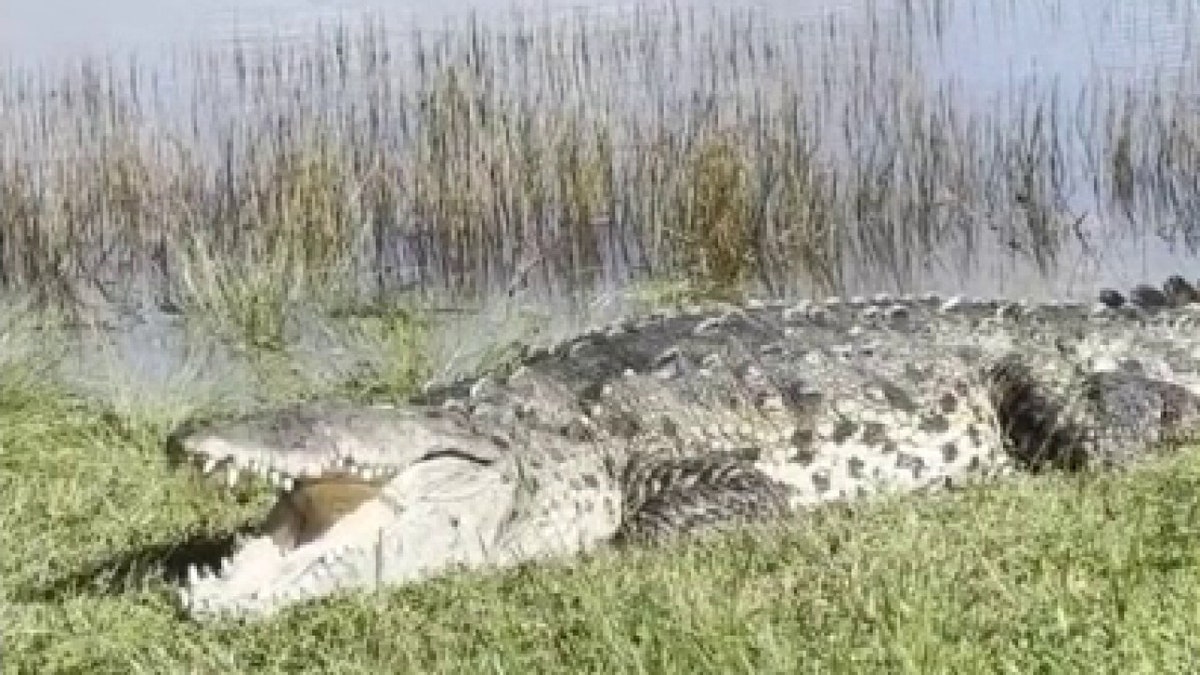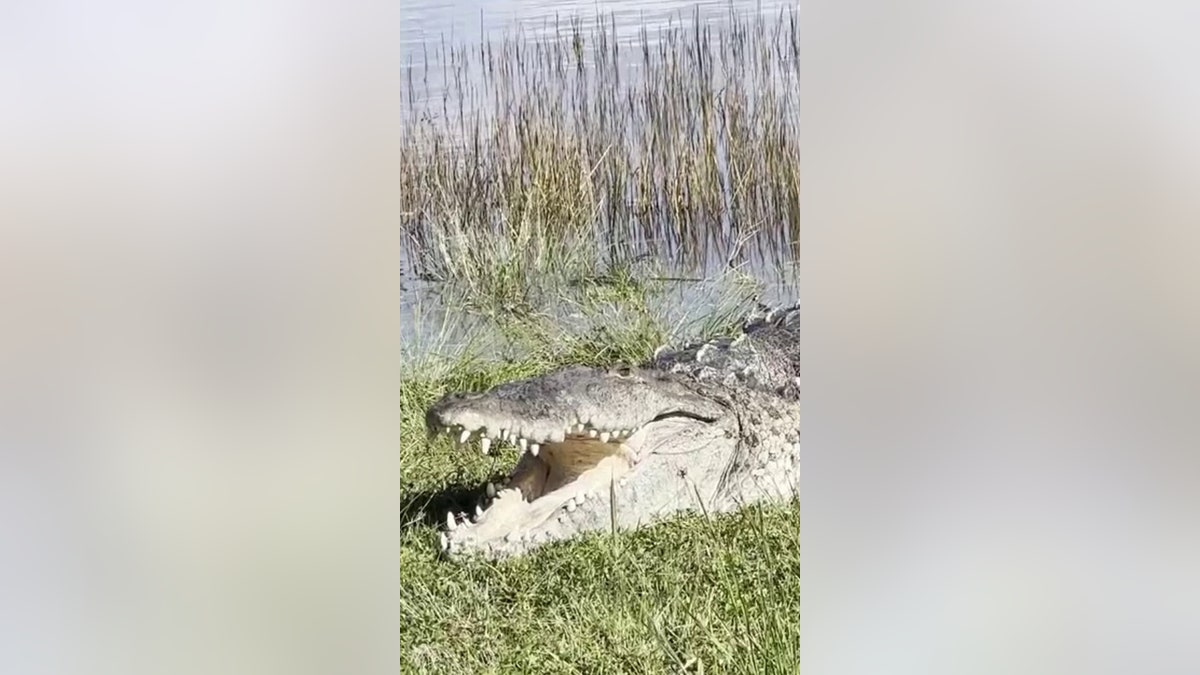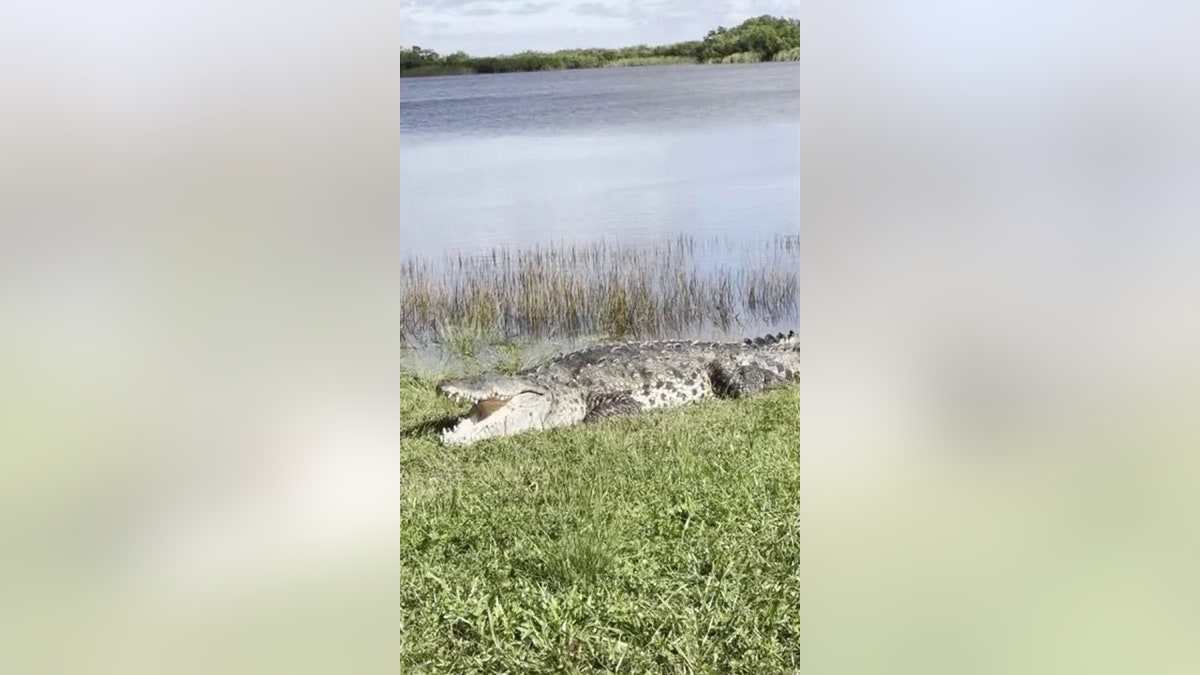Giant crocodile called 'Croczilla' spotted in Florida Everglades
A 14-foot American crocodile called "Croczilla" was encountered at Everglades National Park in Florida. (Credit: @kym_clark / AMAZING ANIMALS+ /TMX)
A rarely seen giant crocodile nicknamed "Croczilla" was recently caught on video relaxing in the sunshine at Everglades National Park in Florida.
Wildlife photographer Kym Clark shared images on Instagram of the 14-foot crocodile, which she said is "the largest American crocodile reported in the Everglades," from Nine Mile Pond.
"Croczilla was quite possibly just as happy to see me as I was to see him! We only met one other time, but it was definitely love at first sight," Clark wrote. "This massive American Crocodile is absolutely the king of the Everglades."
The massive reptile was captured on video quietly basking in the sunshine with its mouth open on the shore of the pond. This behavior, according to the Florida Fish and Wildlife Conservation Commission (FWC), helps regulate the reptile’s body temperature and is not a sign of aggression.

A 14-foot American crocodile called "Croczilla" was encountered recently at Nine Mile Pond at Everglades National Park in Florida. (@kym_clark / AMAZING ANIMALS+ /TMX)
The FWC calls the population of the American crocodile in the state "a conservation success story."

"Croczilla" was seen basking in the sunshine. (@kym_clark / AMAZING ANIMALS+ /TMX)
The American crocodile was listed as an endangered species in 1975, though numbers have since recovered in Florida from just a few hundred to as many as 2,000 adult crocodiles, the agency says on its website.
MASSIVE PYTHON THAT LEFT NEIGHBORHOOD ON EDGE TURNS UP IN UNLIKELY SPOT
The Florida population of American crocodile is now classified as threatened by the U.S. Fish and Wildlife Service.

Wildlife photographer Kym Clark said she has only encountered "Croczilla" once before. (@kym_clark / AMAZING ANIMALS+ /TMX)
The "shy and reclusive" species can be found in south Florida and the Keys in brackish or saltwater areas, notably ponds, coves and creeks in mangrove swamps, according to the FWC.










































